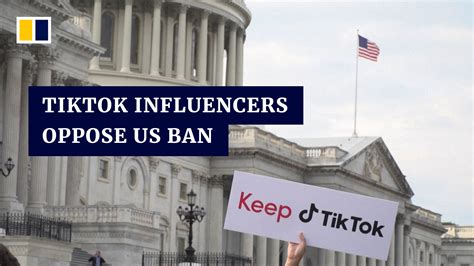The ongoing debate surrounding the potential US ban on TikTok encapsulates a myriad of intertwined issues encompassing free speech, national security, and economic consequences. As we approach the court’s hearing in September, it’s essential to untangle these complexities to understand what’s truly at stake. On one hand, proponents argue the app poses significant national security risks due to its Chinese ownership, while on the other, critics view the ban as an assault on free speech and a heavy-handed approach inconsistent with American values.
One cannot talk about a TikTok ban without addressing the First Amendment implications. Multiple commentators have pointed out that banning TikTok could be seen as an abridgment of free speech, raising the question of whether the government can limit the media formats Americans consume. According to Delichon, the essence of free speech is being compromised if Congress enforces such a ban. This argument suggests that Americans should be able to choose their preferred media platforms freely without government interference based solely on the platform’s ownership. This view aligns with the broader interpretation of First Amendment protections, set forth to safeguard Americans’ right to consume uncensored media.
JulianChastain offers another perspective, highlighting that the First Amendment does not give Congress carte blanche to ban content simply because it is deemed objectionable. Instead, the government must prove a significant national security threat, such as spyware concerns, to justify such a ban. This point introduces a layered complexity: any legislation must withstand strict or intermediate scrutiny to ensure it aligns with constitutional protections. This means that any enacted law must be narrowly tailored to serve a compelling government interest, often a high bar to clear. The case of Lamont vs Postmaster General is a notable example in which the court protected the right to receive foreign media, demonstrating that banning foreign ownership in media is not a straightforward endeavor.
From a policy and legal standpoint, enforcement complexities abound. Even if TikTok’s threats are well-substantiated, implementing a ban presents numerous practical challenges. For instance, Leary contends that limits on foreign ownership and approval regimes for broadcasting services do exist, drawing parallels to historical enforcement mechanisms. However, applying these frameworks to digital platforms in a globalized, internet-driven era creates new legal territory. The 1934 Communications Act, for example, is cited by JumpCrisscross to bar foreign entities from holding broadcast licenses, but extending such regulations to a digital platform like TikTok demands nuanced legal navigation and updates to reflect the current technological landscape.
Economic considerations also loom large. TikTok has rapidly integrated into the American social media fabric, contributing to the digital economy by generating significant ad revenues and providing a platform for thousands of creators. Commenters like RandomLensman and JumpCrisscross question the fairness of allowing ByteDance to profit immensely from the US market while American tech giants like Google and Facebook face stringent regulations—or outright bans—in China. This inconsistency has prompted calls for reciprocal regulatory measures to level the playing field. Yet, enforcing such reciprocity without stifling innovation and consumer choice requires careful policy crafting to avoid potential backlash from both consumers and economic stakeholders.
Lastly, the geopolitical implications cannot be ignored. The anti-TikTok sentiment is often framed within the broader context of US-China relations, particularly concerning data security and potential manipulation. As highlighted by commenters like phendrenad2 and neilv, the discourse often shifts towards geopolitics, drawing attention to the US’s historical stance on foreign propaganda and the emerging digital battleground. Ironically, some argue that the efforts to ban TikTok could be seen as a parallel to foreign propaganda tactics traditionally used in war, further complicating the ethical and moral dimensions of such a ban. Any forthcoming legal decisions will likely have to balance these factors delicately, ensuring that national security concerns are addressed without compromising foundational democratic principles.
In conclusion, the potential TikTok ban involves a tapestry of constitutional, legal, economic, and geopolitical threads that the US court must navigate. Whether through strict scrutiny of potential national security threats or careful consideration of First Amendment protections, the court’s decision will undoubtedly set precedence impacting not just TikTok, but the broader landscape of digital media regulation. As the September hearing approaches, stakeholders across the spectrum—lawmakers, tech companies, consumers, and international observers—will be keenly watching, fully aware that this is more than a legal battle; it is a significant chapter in the ongoing dialogue about freedom, security, and digital citizenship in the 21st century.


Leave a Reply